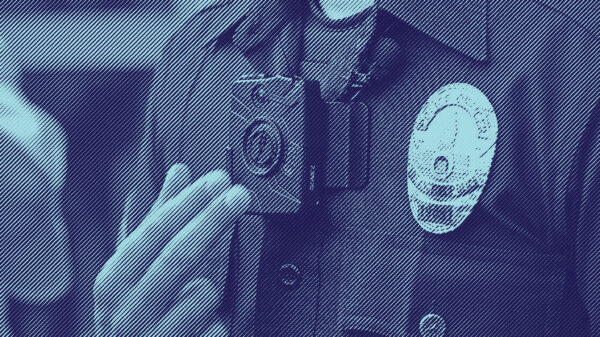AB 1215 Ensures an Inaccurate and Invasive Tracking Technology Is Not Added to Devices Promised for Police Accountability
SACRAMENTO — Today, the California Senate passed AB 1215: The Body Camera Accountability Act, legislation to block law enforcement agencies from using facial recognition surveillance against Californians on officer-worn body cameras. Introduced by Assemblymember Phil Ting (D-San Francisco), AB 1215 passed the Senate just weeks after the ACLU released test results showing that facial recognition software incorrectly “matched” 26 California state lawmakers with mugshot photos from an arrestee database.
“Face-scanning police body cameras have no place on our streets, where they can be used for dragnet surveillance of Californians, our locations, and our personal associations,” said Matt Cagle, Technology and Civil Liberties Attorney for the ACLU of Northern California. “AB 1215 helps ensure Californians don’t become test subjects for an invasive and dangerous tracking technology that undermines our most fundamental civil liberties and human rights.”
Throughout the country and across the world, concerns over use of facial recognition software have mounted in recent years. Multiple studies have found that prominent facial recognition products are less accurate when used against people of color, women, and young people, raising concerns among civil rights advocates that adding the technology to police body cameras could have disastrous results. Human rights concerns have also risen worldwide after reports detailing the Chinese government’s use of facial recognition technology to track and detain members of a largely Muslim minority.
Recognizing the dangers of mixing police body cameras and facial recognition technology, technology companies themselves have drawn a line in the sand. Axon, a prominent body camera manufacturer, announced in June that it would not add facial recognition to its body camera systems for the foreseeable future. Among other companies, Microsoft has also refused to allow a California law enforcement agency to use its facial recognition technology with police body cameras, citing human rights concerns.
AB 1215, which was recently amended by Assembly member Ting to include a three-year sunset provision, requires a final concurrence vote in the Assembly before heading to the Governor’s desk.
The Body Camera Accountability Act (AB 1215) is supported by a wide coalition of organizations that safeguard the rights, safety, and freedom of all Californians in all our diversity: ACLU of California, AIDS Legal Referral Panel, API Chaya, Anti Police-Terror Coalition, Asian Law Alliance, California Attorneys for Criminal Justice, California Immigrant Policy Center, California Public Defenders Association, Citizens Rise!, Center for Media Justice, Coalition for Humane Immigrant Rights, Color of Change, Council on American-Islamic Relations – California, CRASH Space, Data for Black Lives, Electronic Frontier Foundation, Fight for the Future, Harvey Milk LGBTQ Democratic Club, Indivisible CA, Justice Teams Network, Media Alliance, National Association of Criminal Defense Lawyers, National Center for Lesbian Rights, Oakland Privacy, RAICES, README at UCLA, Root Access, San Jose/Silicon Valley NAACP, Secure Justice, Transgender Law Center, Library Freedom Project, Tor Project, and X-Lab.
###
Stay Informed
Sign up to be the first to hear about how to take action.
By completing this form, I agree to receive occasional emails per the terms of the ACLU’s privacy statement.
By completing this form, I agree to receive occasional emails per the terms of the ACLU’s privacy statement.

